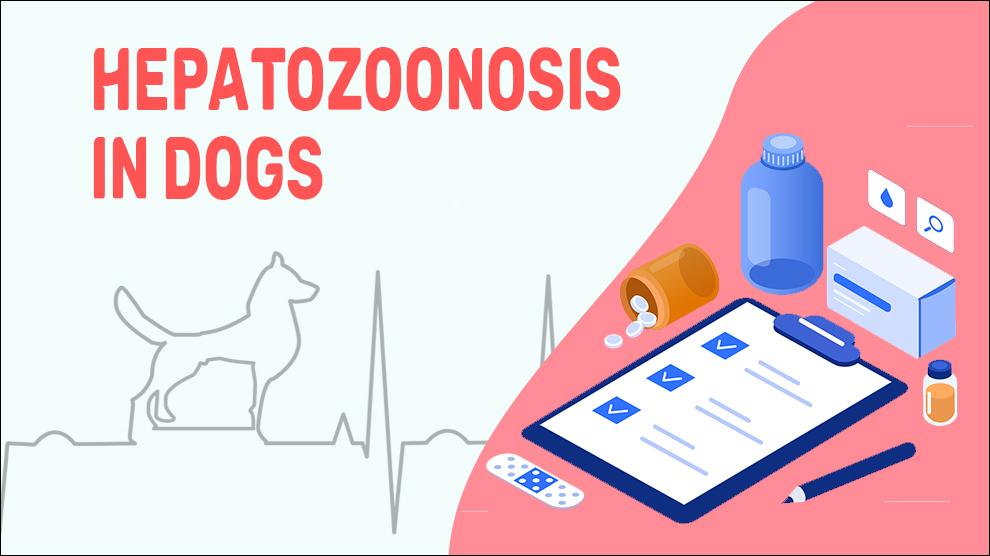What Is Hepatozoonosis In Dogs?
Hepatozoonosis is a life-threatening, multisystemic disease caused by the protozoan called ‘Hepatozoon’. There are 2 types of Protozoa that causes hepatozoonosis: Hepatozoon americanum and Hepatozoon canis. H. americanum is more widespread throughout the Southeastern and Southern United States, while it has also been found in other places. Hepatozoon canis has been most common in tropical regions; however, it has been noted in other regions also.
The main vector of the H. americanum is the Gulf Coast tick (Amblyomma maculatum) causing causes American Canine Hepatozoonosis (ACH). The H. canis vector is a common brown dog tick (R. sanguineus) causing Old World Hepatozoonosis. H. americanum is found to cause more severe infection than H. canis.
Dogs obtain the infection by consumption of an intermediary or paratenic host (rodent or bird) that contains the tick at larval stages or ingesting an adult Gulf Coast tick. Sporozoites contained in the tick infect the dog by migrating through the gastrointestinal tract.
As a cystozoite (a cystic developing stage), the parasite remains dormant in dogs as they will host the disease for the rest of their lives. The offspring of the dogs also get affected by the infected ticks, allowing the spreading of infection to become endemic within a neighborhood tick population.
Dogs of all ages are susceptible to Hepatozoonosis infection but young puppies are at more risk. Clinical evidence now reveals that there are possible vertical transmissions too. Canine Hepatozoon species' zoonotic importance is still not documented. Though, the possibility of zoonotic transmission cannot be overlooked.
Symptoms Of Hepatozoonosis In Dogs
Treatment Options For Hepatozoonosis In Dogs
Treatment includes a course of antibiotics, anti-inflammatory drugs, and pain relievers.
- ACH: 2 weeks treatment with TCP combination: clindamycin, pyrimethamine, and trimethoprim sulfonamide followed by Decoquinate, a coccidiostat.
- Old World Hepatozoonosis: Imizol (imidocarb dipropionate).
- Analgesia and anti-inflammatory drugs may be needed for joint pain.
- Supportive care for metabolic disorders and other complications.
- IV therapy and oxygen therapy.
Home Remedies For Hepatozoonosis In Dogs
The short-term remedies or symptomatic treatments without diagnosing the type of hepatozoonosis infection often lead to the emergence of resistant infections.
Prevention Of Hepatozoonosis In Dogs
- Most of the tick species are active in the spring and fall. In the regions where ticks are most prevalent, persistent tick prevention is recommended.
- There are several effective oral medications, tick collars, and spot-on treatments available; check with your veterinarian about the best product for your dog.
- Tick hotspots are suburban landscapes, overgrown bushes, and patches of grassy areas. Maintain a manicured lawn and keep them at bay by weeding, mowing, or trimming.
- Significant tick infestation in the surrounding can only be prevented by outdoor garden treatments like environmentally friendly deterrents and tick sprays.
- Discourage your dog from roaming freely in tick-infested areas, grassy forested pathways, and bushy areas.
- After any time spent in grassy or wooded areas, run a good old-fashioned "tick check” and feel for bumps on the dog tick trail.
- Curb the access of tick-carrying animals to your backyard; always make sure compost piles and trash bins are placed safely to discourage any curious wild animals (opossums, raccoons, deers, skunks, etc).
Affected Dog Breeds Of Hepatozoonosis
There is no breed or sex predisposition. Prevalent in young puppies. German Shepherd, Greyhound, American Pit Bull Terrier, Staffordshire Bull Terrier
Additional Facts For Hepatozoonosis In Dogs
- Causes:
- Canine Hepatozoonosisis a vector-borne disease that is distributed worldwide.
- Ingestion through an infected tick.
- Ingestion of a paratenic host carrying dormant cysts (ACH).
- Infection through an infected tick in the fur.
- Types:
American Canine Hepatozoonosis:
When the dog gets ingested with H. americanum oocyst by a Gulf Coast tick, the sporocysts are on the loose from within the tick and penetrate the intestinal mucosa of the intestine of the host. After which, they are carried by lymphatic vessels or blood to the dog’s lymph nodes, liver, spleen, skeletal muscles, bone marrow, pancreas, and lungs. When it gets mature and starts to reproduce, large cysts such as merozoites can cause a localized pyogranulomatous reaction at the site of infection and systemic illness.
Old World Hepatozoonosis:
H. canis infection is caused to the dog through the infected adult brown dog tick. The sporocysts penetrate the dog’s intestinal mucosa and then travel to other organs. Unlike ACH, H. canisdoes not usually cause inflammation of muscles or muscle cysts.
- Mortality:
When the infection occurs only in the blood or if it is identified in the starting stage, it is usually cured with standard treatments. Disseminated and chronic hepatozoonosis can be really fatal.
- Diagnosis:
- Complete blood count test (CBC).
- Polymerase chain reaction (PCR) test.
- ELISA test
- Prognosis:
The prognosis for hepatozoonosis is Excellent. In most cases, dogs undergoing proper treatment will recover within a few weeks. The prognosis for Dogs having chronic hepatozoonosis is guarded due to the damage to the vital organs. Severe cases of hepatozoonosis can be life-threatening for dogs, so head to your vet immediately.
When To See A Vet For Hepatozoonosis In Dogs?
Contact your vet right away, if you notice any of the following:
- Malaise
- Muscle atrophy
- Joint pain and Fever
Food Suggestions For Hepatozoonosis In Dogs
- Lukewarm (never hot) chicken soup with Low sodium or brown rice, chicken breast, and/or cooked vegetables.
- Meat-flavored baby food or bland food.
- Semi-moist pet food with boiled chicken.
- Probiotics (yogurt, Goat's Milk, fermented vegetables, kefir with live cultures).
- Mashed boiled potatoes, and carrots.
Conclusion
Tick exposure to most healthy dogs doesn’t always develop a tick-borne disease. But when it happens, early diagnosis and prompt treatment are more than enough.
Sometimes, dogs with hepatozoonosis may be asymptomatic, but if the dog has symptoms, they usually appear a week or two after being bitten by an infected tick.

















